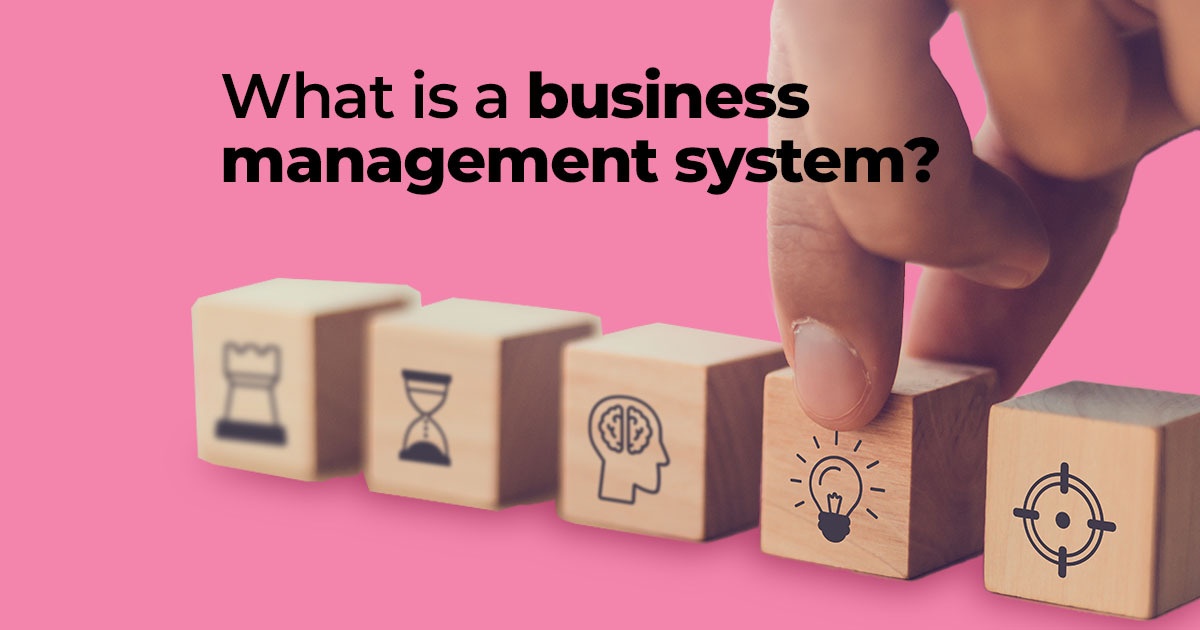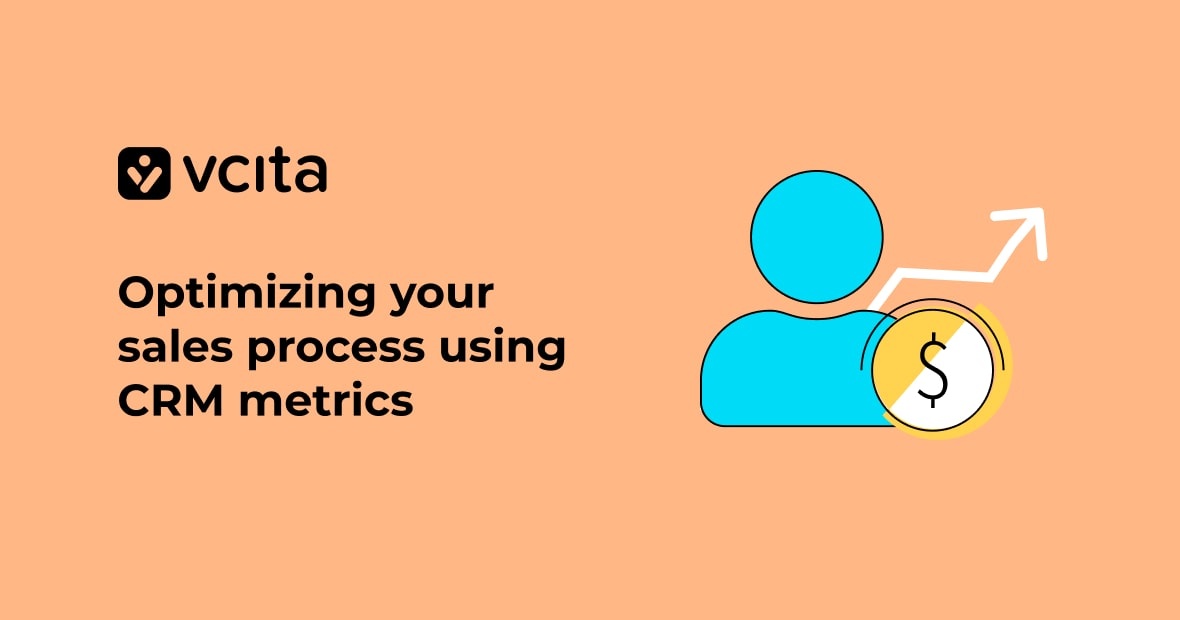If you’re searching for a solution that’ll spare you all those sleepless nights and help you take care of business management strategies, and tactics – and help you carry them out – you’re probably considering bringing a business management system into play.
In this highly competitive, ever-evolving, tech-driven business world, small and mid-sized businesses (SMBs) can keep up with the cutting edge of technology by upgrading their strategies and utilizing benefits supplied by the world of software, or they can stick to the “old ways” and let their business be trampled by their competitors.
There’s no shortage of reasons why an SMB would want to utilize this sort of software, but before looking into the whys and the hows of employing this business solution, let’s clear up what a business management system is.
What is a business management system?
In simple terms, a business management system is a set of tools designed to help all-sized businesses to automate their processes, optimize their workflow and upgrade their overall performance. Most importantly, it can encourage businesses to reach a consistent level of quality in everything they do.
There’s no business that doesn’t deal with a staggering amount of information on a day-to-day basis, from standard everyday operations details to mission-critical data concerning business partners, staff, and clients.
With a business management system, all that data will be collected in a database providing business managers with a comprehensive view of all information essential for an in-depth current state analysis, determining a strategic direction, and building a strategic roadmap to set a business for success.
To put it simply, any solid business management system should provide the following capabilities:
• A customer relationship management (CRM);
• Invoicing;
• Payment collection;
• Marketing tools;
• Simple integration with third-party software;
• Real-time monitoring and reporting;
• Document management software;
• Time tracking;
• Task management tools;
• Data protection;
• Future-proof IT architecture.
How does a business management system benefit your business?
An effective business management system can assist businesses in successfully scaling up/down and managing all aspects of their trade while keeping things simple. Here are the top five benefits of adding a business management system to your business:
Automation
Regardless of the size of your business, adopting automation is a superb way to streamline operations, boost productivity, and support business growth. With a solid business management system, manual labor can be replaced with machine labor, which means that you can put human resources to better use than tackling tiresome administrative tasks.
In addition to this, by making full use of automation across all workflows, businesses can create simpler and swifter customer experiences and build stronger relationships between them and their brand.
What’s more, thanks to automation, a business management system leaves less room for all types of human errors, which is always good for business.
Organization
Once you adopt a business management system, all information related to your business will be saved and you’ll be able to access it quickly. This won’t only save you tons of time, but also help your business stay organized and keep track of its overall performance.
However, being well-organized is much more than creating in-depth analytical reports. It’s also about organizing people, projects, resources, technology, and the whole workflow.
With a business management system, business-critical assignments can be deployed and flagged in real-time which will result in better-organized efforts and more effective outcomes – your employees will be able to adapt their workflow on time and finish critical tasks before the deadline.
For instance, with in-built organization tools such as task lists, you can optimize your productivity and work smarter while making fewer mistakes, completing tasks on time, and avoiding overlooking anything that could prove important.
Productivity
One of the easiest ways to improve employee efficiency and increase productivity is to put a solid business management system to use. As soon as you streamline your workplace, your employees will start working smarter instead of working harder – quicker, with a heightened sense of direction, and without burning out (hopefully).
Without wasting time on tasks a computer can do for them, such as booking appointments or making follow up calls, your employees can keep their focus on more creative, clever, and business-boosting parts of their work description.
Simplicity
While to some simplicity may not sound like something they should strive for in business, it is actually more critical for the success of any business than most give it credit for. Yes, becoming more complex is often associated with growth and becoming more profitable, but many forget that cutting off unnecessary processes and calling it quits with pointless projects is just as significant.
A well-rounded business management system can empower and equip you with all the tools and support you’ll need to manage your business with simplicity in mind. With a click or two, you’ll be able to jump from one screen to another, shift from sales to customer relationship management (CRM) and finish your day by checking out analytics reports and coming up with new ideas on how to update your business strategy.
Cost
Besides making your business more organized, enhancing its efficacy, boosting productivity, and making all your lives a lot simpler, a business management system will save you money otherwise spent on overall operating costs.
Also, since this is an all-in-one sort of system, it’s cutting back on the amount you would otherwise pay for each individual piece of business-critical software – and keeping costs down is simply a good business strategy.
For instance, thanks to email marketing automation you can use a business management system for your clients on a pre-set schedule, which significantly cuts the cost of running email marketing manually.
Plus, since most business management systems are created with ease of use in mind, you’ll also save big bucks you would otherwise blow on time-consuming staff training.
What to consider before buying a business management system?
Now that we have concluded that every soon-to-be-successful business shouldn’t go without the support of a suitable business management system, let’s explore the things to consider before picking out this software for your business.
Scalability
Since you want a solution that can be smoothly scaled up/down to address the needs of your business, consider the scalability of a business management system before making up your mind.
So, before choosing one solution over the other make sure you have a clear idea of your immediate needs and that the business management system of your choice is able to cover all the core criteria but also has a lot more to offer – in the form of add-ons or higher tier packages.
This way you won’t be paying a pretty penny for additional features and services you won’t need at the start – but you can always add them should the need arise.
Ability to meet your goals
If you haven’t solidified your business goals yet, nobody is going to do that for you – and it’s even less likely they’ll help you accomplish them. So, your best bet is to understand your business needs and desires, and then find a solution that’s able to meet them.
For instance, let’s say your primary goal is to increase productivity and profitability of your business. With that in mind you’ll probably want a solution with strong automation capabilities that’ll speed up your workflow but also something that’ll help you master marketing and sales strategies.
So, before choosing the best business management system for your business, do a bit of research on your own – check features and functionality straight away, then shift to pricing. Also, don’t forget to set your budget beforehand.
Ease of Use
Since a business management system is a type of tool that is typically made with ease of use in mind, it should be easy to understand, set up, and use – even for non-techies.
However, even if most business management systems don’t require a high level of technical know-how, with different business management systems, you’ll get different levels of user-friendliness.
One of the first things you’ll spot on a business management system is its user interface (UI), and since you and your team will be spending a good deal of your time there, make sure it’s intuitive, clear, and user-friendly overall.
Also, since multitasking skills are a must in the business world today, you’ll want a solution that will let you seamlessly switch from one task to another.
Benefits to your customers
A good business management system won’t only make life easier for you, but also make everything easier for your customers – and the bottom line is, customers are critical for all businesses, so making and keeping them happy should be one of your top priorities.
This is why a CRM functionality should be a built in quality of any fully-featured business management system – it’ll simplify customer interactions, build stronger client relationships, and consequently increase customer retention and stimulate more sales.
In addition, if your business management system offers widgets or add ons to your site, so that clients can book and pay for services directly from there, it’s a big plus. Making your clients’ lives easier means more business and an improved bottom line.
Finally, you might also want to consider a business management system that offers your clients their own portal where they can log in and interact with your business. This makes your clients feel special and offers them an unparalleled level of service, since they can access your business, or settle payments 24/7.
Security
Before buying any software, business management software included, you should check what sort of security the software has to offer. Since it will be collecting and storing countless sensitive information (from your clients, staff, and yourself) you’ll want to ensure it is safe and secure – you don’t want to be remembered as having one of the biggest data breaches in history, right?
Here’s one tip, prior to purchasing any software check out its privacy policy – it won’t be the most exciting read ever but it is a must. Also, make sure you can run a security audit every once in a while.
Support
Another thing you’ll want to think about before purchasing a business management system is what sort and scope of technical support they offer. While the support you’re going to require is strongly linked with the experience you’ve had with similar software, it’s always a smart idea to have a professional to rely on if something goes wrong.
So, check whether the business management system provider you’re considering offers phone or live chat support channels (getting both would be superb) so you can solve all issues almost straight away. Although email support and ticketing systems can come in handy, they often take too long.
Also, don’t forget to check if technical support is included in the price of the software, or if it comes as a paid add-on which can significantly spike up the total cost.
Risks involved
Adding any sort of software comes with certain risks for a business and the same is true for business management systems. For instance, since a business management system will be collecting and storing client data online, it puts them and your business at greater risk of identity theft, data breaches, and payment fraud.
Also, you should think about compliance and legal risks since consequences of violating laws and regulatory standards can be punished with hefty fines, prison time for executives, or irreparable reputation damage.
That’s why you’ll want to choose a business management system that comes with a minimal amount of risk and to do so you’ll want to:
· Make sure your choice is compliant;
· Check if it’s up to date;
· Ensure it comes with fraud detection tools and a solid security solution overall.
Proven track record
In addition to checking product pros and cons on popular review websites (such as Trustpilot, Reviews.io, and Google reviews) and product reviews written by professionals, you could (and should) get in touch with other businesses that are (or were) using the business management system you’re considering and ask them about their experiences with the provider.
Are they happy customers? Were they satisfied with the setup, customer support, training (if any was provided), ease of use? How did their business benefit from the solution? Also, were there any hidden costs involved?
Another thing you could ask for is customer references (three, at least) – since you want to make sure the provider of your choice has a proven track record (hopefully, it will be a track record of success).
Get a business management system that’s right for your business
A business management system is an all-around, all-in-one sort of solution that can make or break a business – so, it’s important to invest in one that suits your business the best. In turn, it can bring your business efficiency to the next level and boost your productivity like nothing else.
We’ve covered the top ten things to consider before buying a business management system but you don’t have to stop at that – every business is unique and has unique needs, so it definitely deserves a couple of unique things to be considered as well.




























